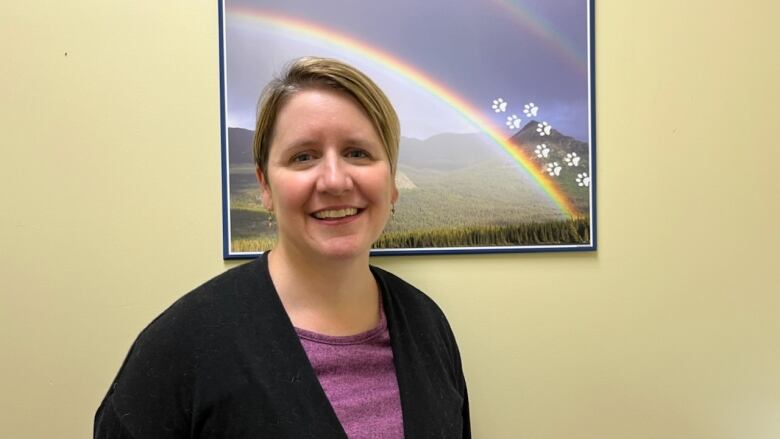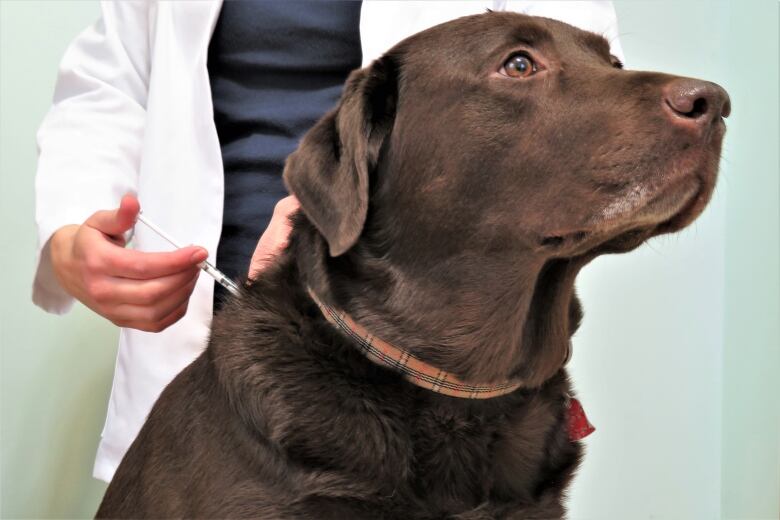Veterinary social work can help grieving pet owners and burnt-out vets
Vet workers are combatting a staffing shortage and a higher risk of mental health issues

Kathleen Dunbar worked in two different worlds.
She started her career in the mental health field, then transitioned to become a registered veterinary technician in her 30s. Now, she's found a way to combine her two passions.
"I always felt like the human needs of the industry weren't being met," Dunbar said. "And then I did some research and I found out that there actually was something called veterinary social work."
Dunbar recently went back to school at Dalhousie University to earn her master of social work and now works at Carnegy Animal Hospital in Halifax.
Veterinary social work is still relatively uncommon in Canada. One of the goals of the position is to help pet owners dealing with stress or grief. She sits down with clients, listens to their needs, provides counselling, and recommends resources.
"There really is a gap. A lot of people are actually out there... they'rereally in a lot of significant distress after the death of their pet. And it can go on for months and months afterwards," Dunbar said.

Our relationship to animals has evolved, Dunbar said, and now many people view their pets as part of their family, making the loss that much more difficult.
"What's key here is that people obtain that validation, compassion, empathy and understanding and realize that it's OK to grieve your pet," she said.
Another element to the job involves supporting veterinary staff with workplace stress and burnout.
Research published by the Ontario Veterinary College in 2020 said over 25 per cent of Canadian veterinarians had experienced suicidal thoughts within the previous year. The same study showed higher rates of burnout, anxiety and depression than the general population.
The veterinary industry has also been experiencing a shortage in Nova Scotia and across the country for years.
Dunbar said that veterinary social work can help address some of those issues.
"I strongly believe that it's an innovative, creative way of supporting people, and I think it's an unmet need," said Dunbar.
Mary-Clare McLaren manages the Carnegy Animal Hospital. She agrees that veterinary social work can help with the challenges facing vets.
"I think we're going to really be starting to think outside the box a little bit, and I think that's kind of what I feel I've done here by putting a social worker on staff," said McLaren.
McLaren said clients and staff have reached out to her since Dunbar started to say how happy they are to have a veterinary social worker available. Dunbar said she's had an outpouring of interest.
The service is free to clients and staff at Carnegy Animal Hospital, but anyone in the province can be referred to her. She hopes to expand to the other Atlantic provinces in the future.
"I feel very lucky that I have this job that I love so much where I can build that connection with people and really support their needs."
MORE TOP STORIES












_(720p).jpg)


 OFFICIAL HD MUSIC VIDEO.jpg)
.jpg)



























































































